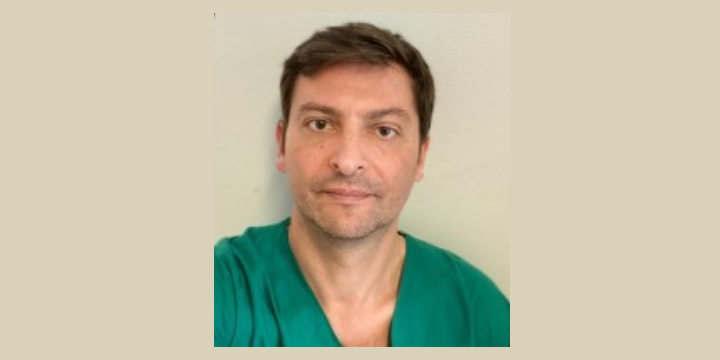They were more than 300 to answer the call of Olivier Véran. On August 8, faced with the health situation in the West Indies, the Minister of Health requested the help of caregivers in mainland France.
“Faced with the health situation in Martinique and Guadeloupe, I call for national solidarity to support the medical teams on site”, he wrote on his Twitter. A week later, the volunteer caregivers arrived in the different CHUs and worked in collaboration with the local teams.
Read also: To deal with the 4th wave of Covid, 240 caregivers are going to reinforce the West Indies
Among them, Karim Mameri, executive in intensive care at Elbeuf hospital (Normandy). This Normand was assigned to the Pointe-à-Pitre University Hospital on August 10, for a period of 15 days.
What is your mission there?
With a colleague, we were appointed coordinators of the Guadeloupe mission. Concretely, this means that we manage the workforce, to make sure that everything works. We are in charge of 100 professionals including infectious disease specialists, emergency physicians and resuscitators. Among our missions, there is also a role of “debriefing” after the working day. This is very important, because for many people this is the first emergency mission.
How would you describe the situation at the CHU?
Unfortunately, choices for intensive care admissions are made. We see the incidence rate climbing without knowing how far it will go. The teams on site are exhausted and lacking in resources. Things have been going on for 18 months and caregivers are doing their best. They are tried. The influx of patients is very important, around 30 patients per day, while we have barely 60 intensive care beds. As for the material, there is also a strain on oxygen.
What is the profile of patients in critical care?
Here, the Covid affects absolutely everyone. The virulence of the Delta variant means that we end up with people in respiratory distress when they have very low comorbidities. We even admitted 30-year-old patients to critical care without any comorbidities.
What conclusions do you draw from this first week?
First of all, I would like to remind you that if the caregivers were able to come and lend a hand to our colleagues in the West Indies, it is because colleagues have agreed to replace us. Everyone made sacrifices. As for the situation there, I feel really useful. It is not a question of carrying out an audit or of forcing the population to be vaccinated, but of doing my job as a caregiver. Of course, we are calling for vaccination because it saves lives, but here my role is not to lecture or give lessons.
Karim Mameri’s mission will end next Tuesday. Due to the situation, the caregiver believes that his team will be “very probably”Replaced by other reinforcements.
 Cherry tomatoes contaminated with salmonella: 92 sick and 1 dead
Cherry tomatoes contaminated with salmonella: 92 sick and 1 dead  A better coaching method can make a person grow
A better coaching method can make a person grow  What is the method to prevent diabetes in children?
What is the method to prevent diabetes in children?  What are the effective factors in causing stomach ulcers?
What are the effective factors in causing stomach ulcers?  Why do embarrassing memories seem to appear at night?
Why do embarrassing memories seem to appear at night?  The amazing link between SARS-CoV-2 infection and newly started diabetes
The amazing link between SARS-CoV-2 infection and newly started diabetes  WHO says monkey pox is not a global emergency right now
WHO says monkey pox is not a global emergency right now  Single cell RNA sequencing uncovers new mechanisms of heart disease
Single cell RNA sequencing uncovers new mechanisms of heart disease  Hepatitis of unknown origin: 3 new deaths and 228 cases worldwide
Hepatitis of unknown origin: 3 new deaths and 228 cases worldwide 